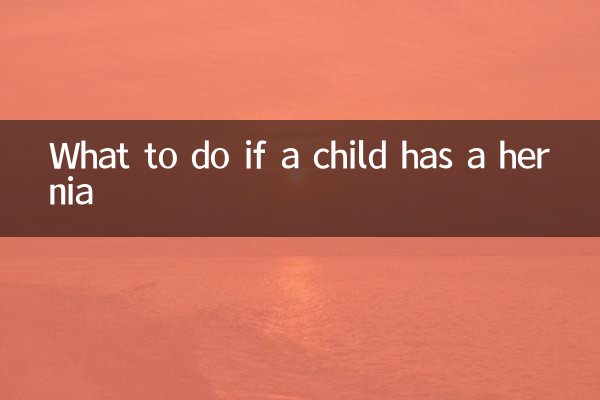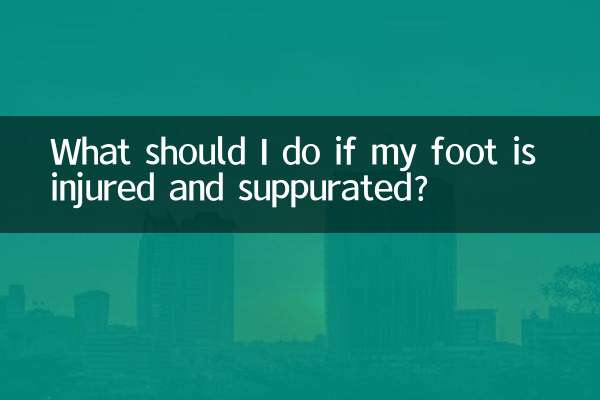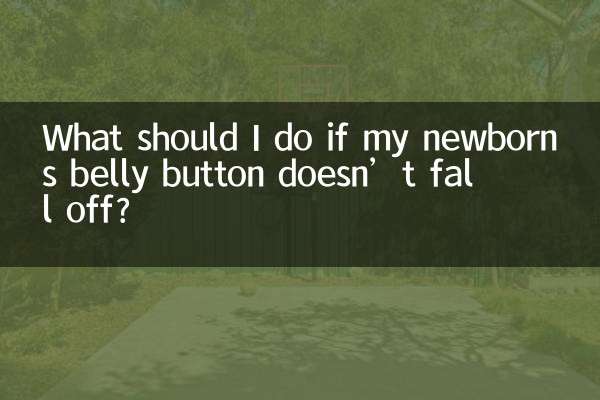In today's era of information explosion, parents are paying more and more attention to children's health issues. In the past 10 days, the discussion about hernia in children has increased significantly on the Internet, and many parents are searching for the topic "What should I do if my child has hernia?" In order to help parents better understand and deal with this problem, we have specially compiled relevant information, hoping to provide you with valuable reference.
What is pediatric hernia?
Pediatric hernia, medically known as indirect inguinal hernia, refers to an organ in the abdominal cavity (such as intestines) protruding out of the body through a weak point in the groin area, forming a visible mass. This is a common surgical disease in children, mostly affecting boys, especially premature infants.

Symptoms of hernia in children
Typical symptoms of hernia in children include the appearance of a reducible mass in the groin area or scrotum, which is usually noticeable when crying, coughing, or exerting force, and disappears when quiet or lying down. Some children may experience pain or discomfort.
| symptom | describe |
|---|---|
| lump in groin | A reversible mass appears in the groin area, which is obvious when crying |
| scrotal enlargement | Boys may develop scrotal enlargement |
| discomfort | Some children may experience pain or discomfort |
| Vomit | If incarceration occurs, there may be symptoms of vomiting |
High-risk groups for hernia in children
| Crowd characteristics | Incidence |
|---|---|
| premature infant | about 30% |
| boy | 3-10 times that of girls |
| have family history | increased incidence |
| low birth weight infant | Higher incidence |
Treatment of hernia in children
The currently recognized treatments for pediatric hernias in the medical community mainly include the following:
| Treatment | Applicable situations | Advantages and Disadvantages |
|---|---|---|
| Watch and wait | Infants under 6 months old with mild symptoms | Self-healing is possible, but there is a risk of incarceration |
| hernia belt | Situations where surgery is temporarily inoperable | Temporary measures cannot cure the disease |
| surgical treatment | Surgery is generally recommended after diagnosis | Radical cure, modern surgery is less invasive |
Specific information about surgical treatment
For diagnosed hernias in children, doctors usually recommend surgery. Modern pediatric hernia surgery is very mature and safe.
| Surgery type | Operation time | length of stay | recovery time |
|---|---|---|---|
| traditional open surgery | about 30 minutes | 1-3 days | 1-2 weeks |
| laparoscopic surgery | about 20 minutes | 1-2 days | 3-5 days |
Postoperative care points
Care after pediatric hernia surgery is very important. Here are some key considerations:
| time | Nursing points |
|---|---|
| Within 24 hours after surgery | Keep the wound dry and avoid strenuous activities |
| 2-3 days after surgery | You can move slightly to avoid getting water on the wound |
| 1 week after surgery | Review the wound and assess recovery |
| 1 month after surgery | Avoid strenuous exercise and heavy physical activity |
How to prevent hernia in children?
Although hernias in children cannot be completely prevented, parents can reduce the risk by paying attention to the following points:
1. Avoid letting your baby cry violently for a long time
2. Pay attention to preventing constipation and maintaining smooth defecation
3. When holding the baby, pay attention to supporting the abdomen to avoid excessive force on the abdomen.
4. For premature infants and low-birth-weight infants, special attention should be paid to the condition of the groin area
When do you need immediate medical attention?
Parents should take their children to the doctor immediately if:
1. The hernia mass cannot be pushed back into the abdominal cavity
2. The hernia mass becomes hard, red, or the pain increases
3. The child vomits and refuses to eat
4. The child is restless and continues to cry.
Although hernia is a common disease in children, timely and correct treatment is very important. Parents don’t need to be overly anxious, but they shouldn’t take it lightly either. Through scientific understanding and standardized treatment, the vast majority of children can fully recover. If you notice that your child has related symptoms, it is recommended to consult a professional pediatric surgeon as soon as possible.

check the details

check the details